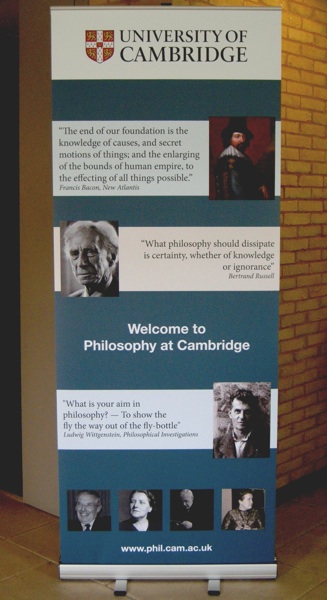Symposium V: Self-Regulation - Tamar Szabó Gendler and Jennifer Nagel
Duration: 1 hour 4 mins
Share this media item:
Embed this media item:
Embed this media item:
About this item

| Description: | Recording of Symposium V: Self-Regulation given by Tamar Szabó Gendler (Yale) and Jennifer Nagel (Toronto) on Sunday 13th July 2014. |
|---|
| Created: | 2014-08-18 11:50 |
|---|---|
| Collection: | Joint Session 2014 |
| Publisher: | University of Cambridge |
| Copyright: | Faculty of Philosophy |
| Language: | eng (English) |
| Distribution: |
World
|
| Explicit content: | No |
| Abstract: | Tamar Szabó Gendler (Yale):
The Third Horse: On Unendorsed Association and Human Behavior On one standard reading, Plato’s works contain at least two distinct views about the structure of the human soul. According to the first, there is a crucial unity to human psychology: there is a dominant faculty that is capable of controlling attention and behavior in a way that not only produces right action, but also ‘silences’ inclinations to the contrary – at least in idealized circumstances. According to the second, the human soul contains multiple autonomous parts, and although one of them – reason – normatively dominates the others, it may fail to do so descriptively: even in the face of full, explicit, well-reasoned, conscious awareness of the truth of a claim, a person may continue to feel residual inclinations towards disavowed, inappropriate and misguided experiences and courses of action. In this paper, I will argue that even the second of these views does not fully capture the ways in which reflective commitment fails to guide human action. Whereas the traditional multi-part soul view is well-suited to explaining phenomena that involve a cognitive conflict between our reflective attitudes and our non-reflective endorsements (such as weakness of the will), it falls short when we turn to the full array of human patterns of response, because it neglects a further source of challenge to reason’s rule, namely, the mediation of associative and heuristic processes. These processes introduce complications for which the simple faculty psychology view cannot adequately account. Because they produce challenges to reason’s rule that are phenomenologically invisible, traditional strategies for self-regulation cannot be straightforwardly applied to their management. Jennifer Nagel (Toronto): Intuition, Reflection, and the Command of Knowledge Action is not always guided by conscious deliberation; in many circumstances, we act intuitively rather than reflectively. Tamar Gendler contends that because intuitively guided action can lead us away from our reflective commitments, it limits the power of knowledge to guide action. While I agree that intuition can diverge from reflection, I argue that this is not always a bad thing, and that it does not constitute a restriction on the power of knowledge. After explaining my view of the contrast between intuitive and reflective thinking, this paper argues against the conclusions Gendler draws from empirical work on implicit bias. |
|---|---|

